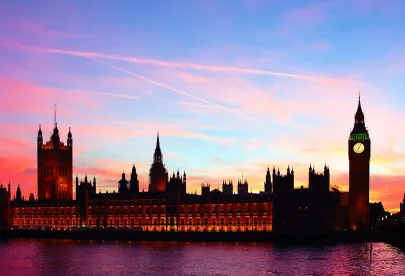“There is broad agreement on the principles, but there are huge dangers lurking in the detail… Those dangers have to be flushed out before the bill is sent to the other place.” (Baroness Sherlock)
Yesterday the pension schemes bill (the bill) had its second reading in the House of Lords. There was much comment and concern around the framework style of the bill, which is deliberately widely drawn to leave the detail to be picked up in regulations. Where does this leave us?
The pension schemes bill looks set to introduce significant legal and regulatory changes in 2020. Much has been written (including by us) about the key planks of the reforms. A question remains as to when it will come into law. To help answer that question, here is an insight into the parliamentary process through which the bill must pass.
How does a bill become a law?
Following the State Opening of Parliament, the pension schemes bill was re-introduced in the House of Lords for its first reading on 7 January 2020, followed by its second reading on 28 January 2020.
A bill can start in either the House of Commons, or the House of Lords. We outline below the process for a bill introduced into the House of Lords, as was the case with the pension schemes bill.
The first stage is the first reading, this is where the long title is read out. Once the bill has been introduced, there is opportunity to debate the bill – this takes place at the second reading. Any concerns or areas requiring amendments may be discussed at the second reading. The next stage of the process is the committee stage where amendments are scrutinised. The committee stage usually starts around two weeks after the second reading debate. The bill has to be agreed and there are votes on amendments. Once the revised bill has been reprinted, it moves to the report stage for further scrutiny. The report stage usually starts around two weeks after the committee stage has concluded. The next step is the third reading, this gives members the opportunity to “tidy up” the bill and ensure that what will eventually become law is workable. After the third reading, the bill will go to the House of Commons for its first reading and will follow a similar (but not identical) parliamentary process. If any amendments are made by the House of Commons, they must be reconsidered by the House of Lords. Debate over amendments to the bill can result in the bill “ping-ponging” between Houses. Once the bill has completed its progress through both Houses of Parliament, the final stage is to receive royal assent by the Queen, thereby making the bill a law.
How soon does a law take effect?
Once royal assent is given, a law may take effect immediately, after a set period, or once a commencement order is given. The guidance on Better Regulation Framework published in 2018 by the Department for Business, Energy & Industrial Strategy recommended that there should generally be two “annual common commencement dates” for legislation: 6 April and 1 October. It is not yet known when the pension schemes bill will become law, however, it has cross party support and we hope that the “huge dangers” can be addressed, so as to minimise the possibility of the bill ping-ponging between Houses.



 />i
/>i

